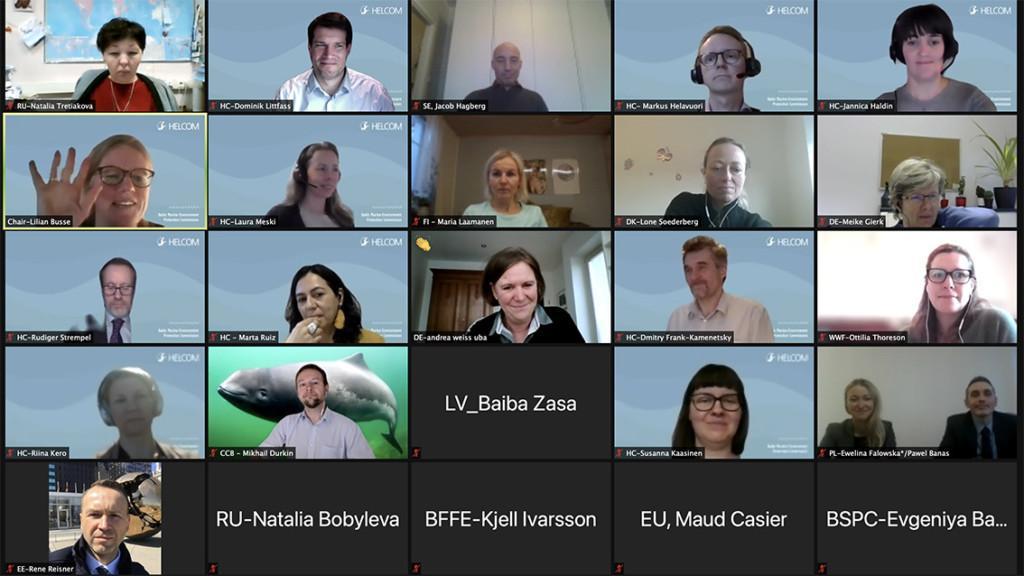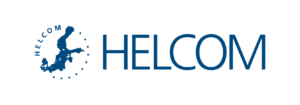
More milestones on the now imminent update of the Baltic Sea Action Plan (BSAP) were reached during the 42nd Meeting of the Helsinki Commission (HELCOM 42-2021), held online from 17 to 18 March 2021, keeping the work on the new plan well on track and within the planned schedule.
A second full draft of the updated Baltic Sea Action Plan (BSAP) was presented at the meeting. Further refinements will now take place in the various HELCOM bodies tasked with the drafting of the update. The BSAP, in addition to actions and measures, will now also include a list of environmental hotspots that will need to be resolved as part of the plan’s implementation.
The updated Baltic Sea Action Plan (BSAP) is due to be adopted during the next HELCOM Ministerial Meeting which will be hosted by Germany and is scheduled to take place on 20 October 2021 in Lübeck, Germany. HELCOM Ministerials take place every three years and bring together the competent Ministers from the HELCOM countries and the EU Commissioner for the Environment.
Several key processes and documents due to be adopted alongside the updated BSAP and serving as supporting tools to reach its objectives were also green-lighted for further development at HELCOM 42-2021. These include the draft Baltic Sea Regional Nutrient Recycling Strategy and the draft Regional Maritime Spatial Planning Roadmap 2021-2030.
The HELCOM Contracting Parties also approved, in principle, the draft HELCOM Regional Action Plan on Underwater Noise. Due to be adopted in June 2021 by the HELCOM decision-makers pending final refinements, the plan will contain a set of regional and national actions for the monitoring and management of man-made underwater noise in the Baltic Sea.
On hazardous substances, the Contracting Parties agreed to modernize the overall HELCOM framework dealing with the issue, to allow a faster and more efficient response to emerging challenges caused, for instance, by a relentless introduction of new chemicals used in industry and consumer products. The new strategic direction will also enable a better understanding of the full diversity of sources and pathways of contaminants to the Baltic Sea.
Serving as a basis for this decision, HELCOM had, earlier in 2020, drafted a strategic regional policy document on hazardous substances, in cooperation with the Stockholm University Baltic Sea Centre and with the support of the Swedish Agency for Marine and Water Management (SwAM).
In a bid to improve response to spills in the Baltic Sea, the Contracting Parties also adopted the revised HELCOM Response Manual as well as the draft Multi-regional Marine HNS Response Manual which will replace the current HELCOM Response Manual Volume 2. Both manuals are primarily intended for the authorities dealing with transboundary maritime incidents affecting the waters of several countries and are intended to facilitate the coordination of international response efforts.
At HELCOM 42-2021, the revised HELCOM Recommendation 31E/6 Rev on integrated wildlife response planning in the Baltic Sea area was also adopted. The Recommendation lays out options and strategies for the response to maritime accidents such as oil spills in order to guarantee a swift mobilization of resources to safeguard and attend to affected wildlife.
To improve the protection of habitats and species in the Baltic Sea, the HELCOM Contracting Parties further agreed to cooperate with FAO and IUCN in organizing a regional HELCOM workshop on “other effective area-based conservation measures” (OECMs) in early 2022. OECMs are geographically defined areas other than marine protected areas (MPAs) but that have a positive effect on the conservation of biodiversity.
The meeting was also an opportunity for the HELCOM Executive Secretary, Rüdiger Strempel, to highlight the achievements of the organization in 2020, noting, in his statement, that “despite the unprecedented challenges posed by the Corona pandemic, HELCOM work progressed largely as planned in 2020.” The HELCOM Activities report for the year 2020 was also presented on the same occasion.
The outcomes of the recently held HELCOM Stakeholder Conference 2021 “Practically Implementing Ecosystem-Based Management” (HSC2021) were also presented. In addition to being one of the HELCOM Voluntary Commitments to the UN Ocean Conference 2021, the HSC2021, held as an online workshop, also offered the possibility to gather considerations on Ecosystem-Based Management (EBM) from stakeholders as possible input for the BSAP update process, the HELCOM Science Agenda and HELCOM’s future work on implementation on the ecosystem approach. The results of the HSC2021 are now due to be forwarded to the relevant HELCOM groups for further consideration.
The HELCOM 42-2021 meeting was chaired by the Chair of the Helsinki Commission, Lilian Busse, Germany and the Vice-Chair of HELCOM 2020-2021, Mr. Johannes Oelerich, Germany. Attended by all Contracting Parties, it was also the first official meeting for the newly appointed Heads of Delegation of Lithuania and Poland and, Ms. Agnė Lukoševičienė from the Ministry of Environment of Lithuania, respectively Ms. Ewelina Fałowska from the Ministry of Infrastructure of Poland.
- Read the outcome of HELCOM 42-2021
- Access all meeting documents

